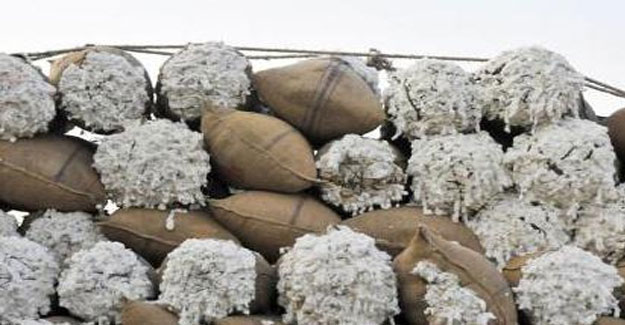
Pak Mulling Withdrawal Of All Taxes On Cotton Import
The Textile Division of the Economic Coordination of Committee (ECC) of the Cabinet has proposed that custom duty, additional custom duty, and sales tax on imported cotton be withdrawn immediately. In response to the proposal for the abolition of taxes on cotton import, the ECC, which met here with Finance Minister Asad Umar in chair to review different sectors of the economy and the vital economic indicators, asked the Textile Division for details/data on the impact of such proposals on revenue and trade. According to a summary of proposals presented to the ECC by the Textile Division, as of January 1, 2019 more than 95% of cotton will be lifted from the farmers in a bid to encourage value-addition, reduce the cost of doing business and fill the gap between production and consumption. Textile Division has asked the ECC of the Cabinet to accord approval to the proposals at the earliest. As per details, Pakistan is a net cotton importer since 2001. Domestic cotton is of short to medium staple length therefore, long and extra long staple cotton has to be imported for production of finer yarn counts for subsequent transformation into high value-added finished products. Import of cotton had remained duty-free until the 0% slab was abolished in 2014-15 and Custom Duty (CD) of 1% was imposed along with a 5% sales tax. Later, 1% slab was increased to 2% and then 3% along with a 2% additional duty to make it 5% -currently cotton is subject to 3% CD, 2% additional custom duty, & 5% sales tax. Prime Minister's Package of Incentives for exporters was announced on January 10, 2017, wherein textile sector was provided a number of facilitations, including withdrawal of customs duty and sales tax on imported cotton starting from January 16, 2017. The textile industry of Pakistan consumes around 12-15 million bales per annum. Sustainability and viability of spinning industry is completely dependent on performance of the domestic crop. Textile industry has to meet any shortages by using imported cotton from other countries. The impact of duties is induced in the price of domestic cotton, resulting in increase in cost of doing business for the entire textile value chain especially for export oriented sector in highly competitive international markets. According to Cotton Crop Assessment Committee (CCAC) meeting held by MNSFR in September 2018, the cotton crop for the year 2018-19 is expected to be around 10.78 million bales of 170 kilogram, a decrease of 9.7% compared to last year and a decrease of 24% against the initially fixed target of 14.37 million bales. Further 9.62 million have already arrived in the ginning factories as of December 15, 2018. Cotton production falling as sowing area shrinks sharply A consistent fall in cotton cultivation area for the last seven years has eventually reduced crop production to little over 10 million bales this year from the bumper crop of 15 million bales in 2011-12. Almost 9 million acres were under cotton cultivation in 2011-12. The sowing area steeply declined to 5.9 million acres in 2018-19 as opposed to government estimates of 7.3 million acres, but no successive governments took any action to arrest the situation, with the result that the country now relies on imported cotton to meet local demand. Over the past few years, growers shifted from cotton to sugarcane due to various reasons. Cotton is not only a cash crop but is also ideal for a country like Pakistan which is faced with water shortage because it is a semi-drought crop and needs far less water for irrigation than any other crop, said Mian Mahmood Ahmed, a grower and ginner. "Unfortunately cotton production has been reduced to the extent that today the country has to import a substantial quantity of cotton by spending between US$ 1-1.5 billion to meet domestic consumption of around 15 million bales," he said. Declining area under cotton cultivation over the years is resulting in lesser cotton production and if the trend is not arrested it will ultimately result in footing bigger bill for cotton imports and a burden on country's depleted foreign exchange reserves.
Textile Excellence
If you wish to Subscribe to Textile Excellence Print Edition, kindly fill in the below form and we shall get back to you with details.













